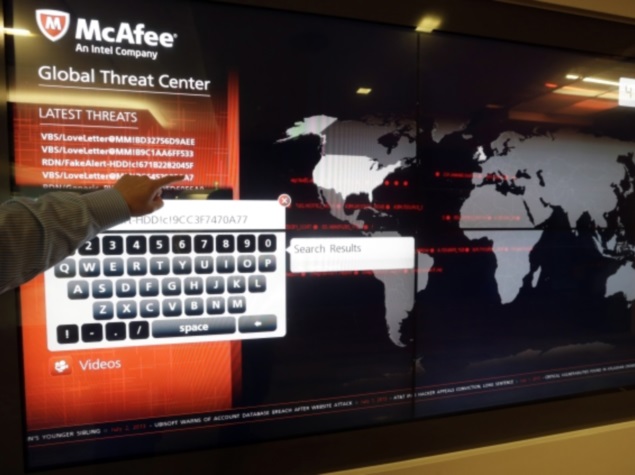- Home
- Internet
- Internet News
- Cybercrime Costs Global Economy $445 Billion a Year: Report
Cybercrime Costs Global Economy $445 Billion a Year: Report

The report from the Center for Strategic and International Studies (CSIS) said cybercrime was a growth industry that damaged trade, competitiveness and innovation.
A conservative estimate would be $375 billion in losses, while the maximum could be as much as $575 billion, said the study, sponsored by security software company McAfee.
"Cybercrime is a tax on innovation and slows the pace of global innovation by reducing the rate of return to innovators and investors," Jim Lewis of CSIS said in a statement.
"For developed countries, cybercrime has serious implications for employment."
The world's biggest economies bore the brunt of the losses, the research found, with the toll on the United States, China, Japan and Germany reaching $200 billion a year in total.
Losses connected to personal information, such as stolen credit card data, was put at up to $150 billion.
About 40 million people in the United States, roughly 15 percent of the population, has had personal information stolen by hackers, it said, while high-profile breaches affected 54 million people in Turkey, 16 million in Germany and more than 20 million in China.
(Also see: Target cyber-breach affects up to 40 million credit and debit cards)
McAfee, owned by Intel Corp, said improved international collaboration was beginning to show results in reducing cybercrime, for example in the takedown last week of a crime ring that infected hundreds of thousands of computers known by the name of its master software, Gameover Zeus.
© Thomson Reuters 2014
Catch the latest from the Consumer Electronics Show on Gadgets 360, at our CES 2026 hub.
Related Stories
- Samsung Galaxy Unpacked 2025
- ChatGPT
- Redmi Note 14 Pro+
- iPhone 16
- Apple Vision Pro
- Oneplus 12
- OnePlus Nord CE 3 Lite 5G
- iPhone 13
- Xiaomi 14 Pro
- Oppo Find N3
- Tecno Spark Go (2023)
- Realme V30
- Best Phones Under 25000
- Samsung Galaxy S24 Series
- Cryptocurrency
- iQoo 12
- Samsung Galaxy S24 Ultra
- Giottus
- Samsung Galaxy Z Flip 5
- Apple 'Scary Fast'
- Housefull 5
- GoPro Hero 12 Black Review
- Invincible Season 2
- JioGlass
- HD Ready TV
- Laptop Under 50000
- Smartwatch Under 10000
- Latest Mobile Phones
- Compare Phones
- iQOO Z11 Turbo
- OPPO A6c
- Samsung Galaxy A07 5G
- Vivo Y500i
- OnePlus Turbo 6V
- OnePlus Turbo 6
- Itel Zeno 20 Max
- OPPO Reno 15 Pro Mini 5G
- Lenovo Yoga Slim 7x (2025)
- Lenovo Yoga Slim 7a
- Realme Pad 3
- OPPO Pad Air 5
- Garmin Quatix 8 Pro
- NoiseFit Pro 6R
- Haier H5E Series
- Acerpure Nitro Z Series 100-inch QLED TV
- Asus ROG Ally
- Nintendo Switch Lite
- Haier 1.6 Ton 5 Star Inverter Split AC (HSU19G-MZAID5BN-INV)
- Haier 1.6 Ton 5 Star Inverter Split AC (HSU19G-MZAIM5BN-INV)

















